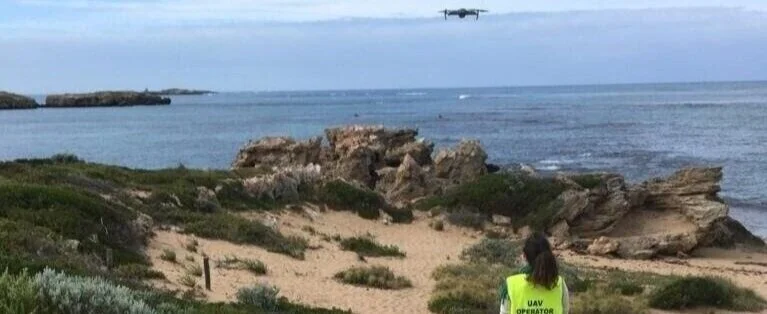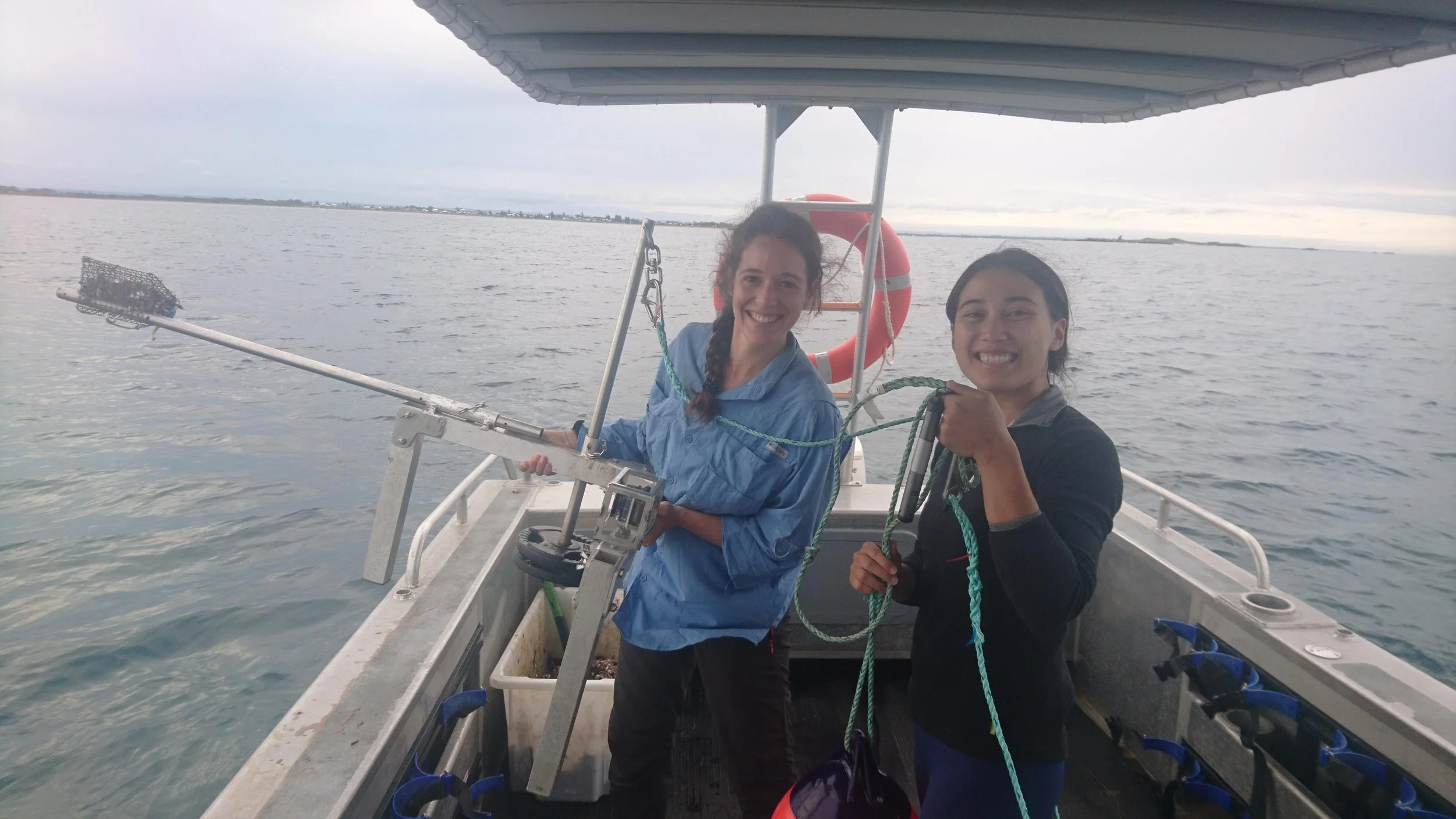Read the latest
– Lab news and field updates –
The drone revolution of shark science
15 March 2021
Drones have enhanced our understanding of shark behaviour and are critically important tools, not only due to the importance and conservation of the animals in the ecosystem but to also help minimise dangerous encounters with humans. We address the different factors to consider when planning and performing shark research using drones
Shark aggregations underpin conservation but where are they and when do they occur?
09 March 2021
Over December 2020, January and March 2021, the team conducted daily trips to the Shoalwater Islands MP onboard the research vessel Ecklonia, were they deployed seabed BRUVS to document the diversity, abundance, size, biomass and behaviour of marine wildlife across all management zones of the marine park.
Healthy oceans need healthy shark populations. Listen to the interview with Professor Meeuwig about trophy shark fishing in Australia
02 March 2021
Interview with Prof Jessica Meeuwig about a 395kg tiger shark caught in New South Wales, Australia. Science-based evidence demonstrates that healthy oceans rely on healthy shark populations, thus shark fishing activities are undermining conservation outcomes.
Vessel noise pollution on marine wildlife, Cockburn Sound case study | Fieldwork
11 October 2020
Marine noise pollution is unseen but a growing concern due to its pervasive nature and impacts on wildlife. Cockburn Sound, WA, which is the most intensively used marine embayment within WA, will be used as a case study to understand the cumulative impacts of vessel noise pollution on marine wildlife.
Fishery biomass trends of exploited fish populations in marine ecoregions, climatic zones and ocean basins
30 September 2020
The first long-term global study of widely consumed fish and invertebrates reveals strong population decline based on assessment of over 1300 stocks. The declining trend is consistent with systematic widespread global overfishing.
A Baseline for the Blue Economy: Catch and Effort History in the Republic of Seychelles’ Domestic Fisheries
05 May 2020
Our paper derived Seychelles domestic catches from 1950 to 2017 in light of the novel blue bonds initiative. The estimated domestic catch was 1.5 times the amount reported by FAO and artisanal Catch Per Unit Effort declined over time.
Geographe and South-west Corner Marine Parks 2020 Expedition
15 March 2020
The South-west Corner Marine Park is the largest marine park in the South-west network and covers 977 square kilometres extending from near-coastal shallow waters to the deep ocean reaching depths of 6400 meters. During this survey, the team has successfully deployed 200 Pelagics BRUVS and collected 18 eDNA samples in addition to manta tows to collect sea surface samples.
Illicit trade in marine fish catch and its effects on ecosystems and people worldwide
26 February 2020
Illegal, unreported, and unregulated fishing is widespread; it is therefore likely that illicit trade in marine fish catch is also common worldwide. We combine ecological-economic databases to estimate the magnitude of illicit trade in marine fish catch and its impacts on people.
Art exhibition | Samson Fish (Seriola hippos) print received the 2019 Head of School Commendation
28 October 2019
Chris Thompson was awarded the Head of School Commendation on the print of a Samson Fish (Seriola hippos). The image was created using the Japanese printing technique gyotaku, a form of nature printing developed in the 1800s used by fishermen to record their catch.









